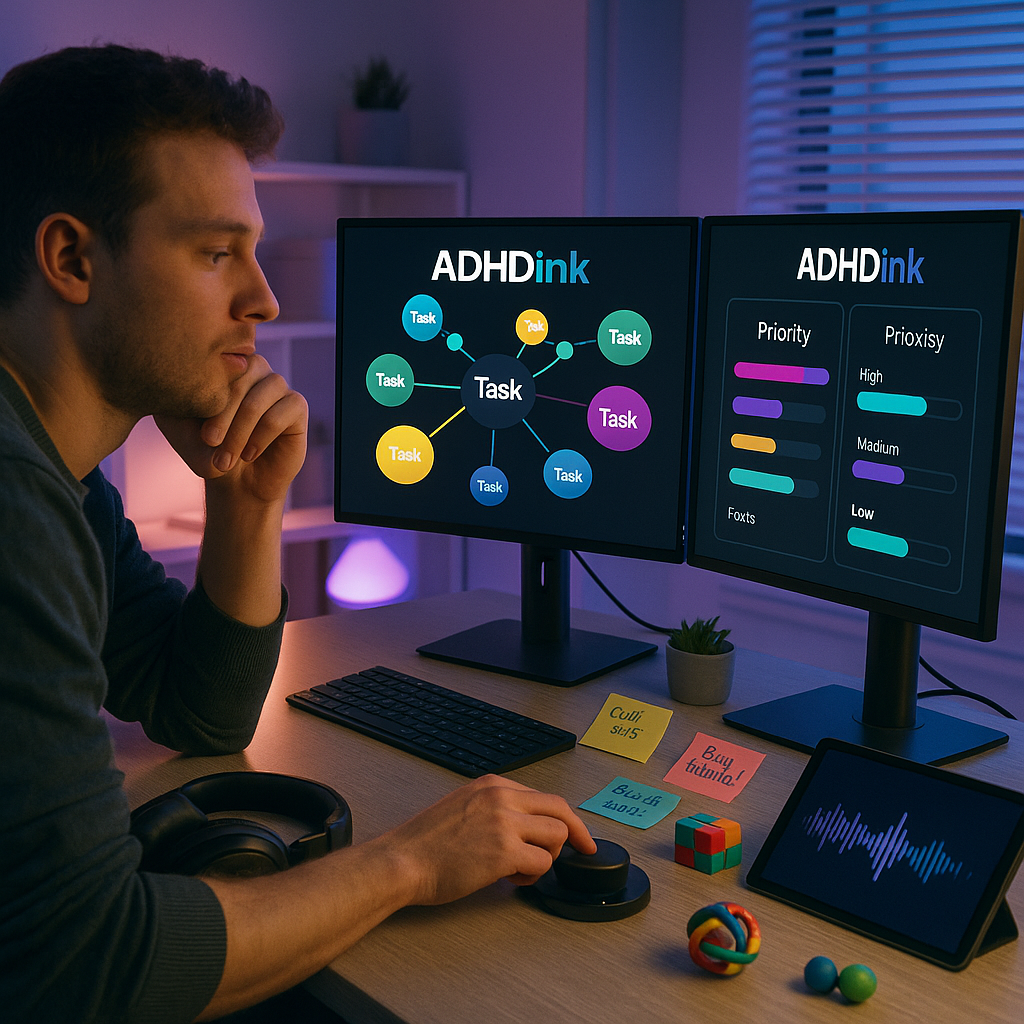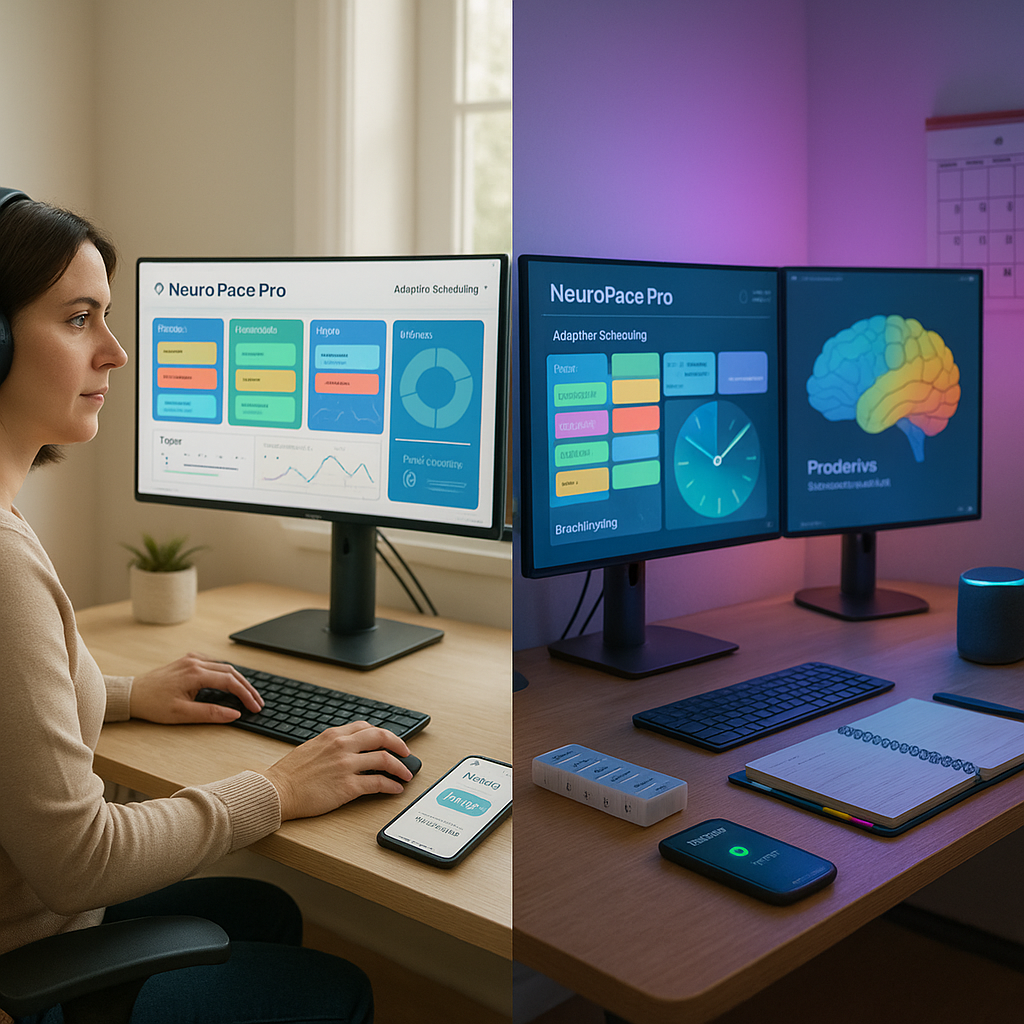Key Takeaways
- Designed for Neurodivergence: The AI assistant customizes reminders, workflows, and cues to support ADHD and autistic cognitive profiles, moving beyond generic productivity tools.
- Addressing Untapped Market: While most AI assistants focus on broad productivity, this release caters specifically to an underserved community with unique needs.
- Empowerment Through Acceptance: The tool highlights strengths like hyperfocus and creative thinking, reflecting founder-led innovation without pathologizing differences.
- Time-Saving Automations: Features such as streamlined task sorting, adaptive notifications, and self-paced goal tracking help reduce overwhelm and burnout risk.
- Scalability for Businesses: ADHDink plans further updates for solopreneurs, teams, and organizations seeking inclusive, flexible workflow systems.
- Upcoming Feedback Loop: User experience surveys and a feature roadmap are scheduled for release next month to refine personalization and expand integrations.
Introduction
ADHDink has launched a new AI assistant for neurodivergent users, providing professionals with ADHD, autism, and related conditions a system to organize tasks, routines, and goals through customized workflows and automation. By emphasizing cognitive strengths and adaptability, the tool addresses gaps in mainstream productivity apps and introduces a more inclusive approach to task management.
What Sets the AI Assistant Apart
The AI assistant features dynamic task sequencing that adapts to individual attention patterns and executive functioning styles. Users can interact through voice, text, or visual interfaces, engaging with the tool in ways that align with their preferred communication methods.
A proprietary algorithm learns from each user’s thought processes and work rhythms instead of enforcing rigid productivity frameworks. Dr. Sarah Chen, lead developer at NeuroTech Solutions, stated that the assistant was designed to embrace neurodivergent thinking patterns rather than forcing users into neurotypical workflows.
Unlike conventional productivity tools, this assistant recognizes task switching as a potential strength and includes context shifting features. These help users maintain momentum across projects while reducing cognitive overload.
Key Features and Functionality
The core functionality includes real-time task prioritization that responds to energy levels and focus states throughout the day. Users indicate their current cognitive state via a color-coded interface, enabling the AI to adjust task suggestions and support in real time.
Integration capabilities allow the assistant to connect with calendar tools, project management platforms, and communication apps. Information is filtered and presented in ways that help prevent overwhelming input. The assistant also automatically creates visual frameworks for complex projects, breaking them into manageable parts.
Time management features support flexible scheduling that accommodates hyperfocus and variable attention spans. Instead of rigid time blocks, the system proposes task groupings based on cognitive demand and available energy.
User Experience and Accessibility
The interface offers a clean, adjustable design with customizable sensory settings, including color schemes, notification styles, and information density. Users can change text spacing, font sizes, and contrast to create an optimal visual environment.
Voice commands leverage natural language processing that understands diverse communication styles. Alex Rivera, a software developer and beta tester, noted that the assistant adapts to his way of thinking and speaking, rather than requiring standardized commands.
Accessibility extends beyond visual and auditory preferences. Users can organize and access information through list views, mind maps, or timelines, selecting the method that best fits their processing style.
Market Impact and Industry Response
Early data indicates strong demand for neurodivergent-focused AI tools, with waiting lists forming shortly after the announcement. Industry analysts estimate an untapped market valued at approximately $8.4 billion in potential annual revenue.
Tech industry leaders have begun announcing initiatives for more inclusive AI tools in response to the launch. Jamie Wong, technology analyst at Digital Futures Research, stated that the development highlights a significant gap in the market for AI systems that embrace cognitive diversity.
Investor interest has grown, with three major venture capital firms announcing dedicated funding streams for neurodivergent founders creating AI and automation tools.
Conclusion
This AI assistant represents a shift in productivity technology, centering neurodivergent strengths and offering adaptable tools for varied attention patterns and communication needs. Its launch underscores a growing industry emphasis on inclusivity and cognitive diversity. What to watch: responses from stakeholders as rival tech companies announce similar initiatives and new funding supports neurodivergent-led startups.





Leave a Reply